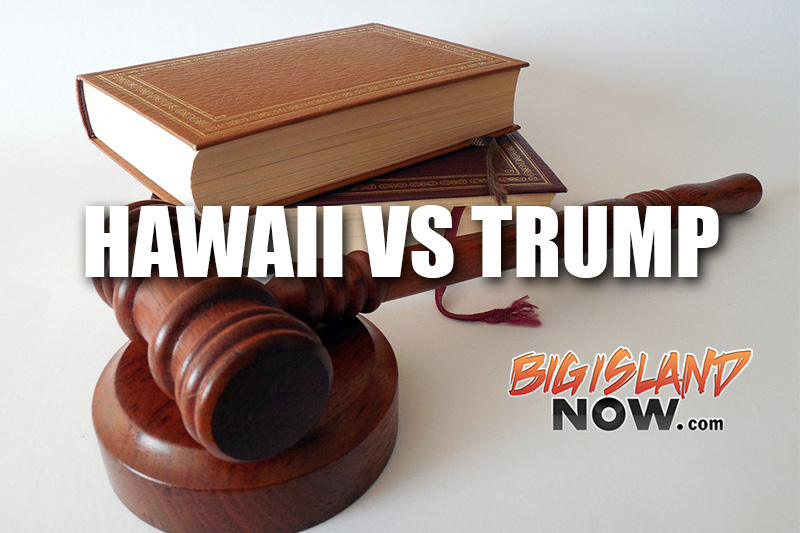UPDATE: Federal Court Rules in Favor or Travel Ban Plaintiffs
 UPDATE: July 14, 2017, 8:34 a.m.
UPDATE: July 14, 2017, 8:34 a.m.
Sen. Hirono: Judge Watson’s Decision Strikes Another Blow Against Muslim Ban
Sen. Mazie K. Hirono, a member of the Senate Judiciary Committee, commented on Judge Derrick Kahala Watson’s ruling that expands the types of family members covered under the Supreme Court’s exemption from President Donald Trump’s Executive Order:
“The Muslim ban and how the Trump administration has chosen to enforce it, continues to demonstrate the administration’s animosity toward immigrants and their families,” said Sen. Hirono. “Americans have always considered grandparents, aunts and uncles to be close family members. This is particularly true for immigrant families like mine—where our grandparents and extended family members helped raise us. Judge Watson’s decision is a victory for our families and strikes another blow against the president’s discriminatory Executive Order.”
ORIGINAL POST: July 14, 2017, 7:16 a.m.
Hawai‘i federal district Judge Derrick K. Watson issued an order on Thursday, July 13, 2017, which largely grants the State of Hawai‘i and Dr. Ismail Elshikh’s motion to enforce, or in the alternative, to modify the preliminary injunction, filed last Friday in Hawaii v. Trump.
On June 26, 2017, the United States Supreme Court issued an order in this case that the travel ban could not be enforced against foreign nationals who have a credible claim of a bona fide relationship with a person or entity in the U.S., including those with a “close familial relationship.”
The same standard applies with respect to refugee admissions. The federal government subsequently issued guidance that such “close familial relationships” did not include grandparents, grandchildren, brothers-in-law, sisters-in-law, aunts, uncles, nieces, nephews and cousins of people currently living in the U.S.
Judge Watson’s order notes that “context matters” and:
ARTICLE CONTINUES BELOW AD“[W]hen appropriately considered in the context of the June 26 order, the government’s narrowly defined list finds no support in the careful language of the Supreme Court or even in the immigration statutes on which the government relies.
[T]he government’s utilization of the specific, family-based visa provisions of the [Immigration and Nationality Act] … constitutes cherry-picking and resulted in a predetermined and unduly restrictive reading of ‘close familial relationship.’ Other, equally relevant federal immigration statutes define a close family in a much broader manner.
In sum, the government’s definition of ‘close familial relationship’ is not only not compelled by the Supreme Court’s June 26 decision, but contradicts it. Equally problematic, the government’s definition represents the antithesis of common sense. Common sense, for instance, dictates that close family members be defined to include grandparents. Indeed, grandparents are the epitome of close family members. The government’s definition excludes them. That simply cannot be.”
“The federal court today makes clear that the U.S. government may not ignore the scope of the partial travel ban as it sees fit,” Attorney General Chin said. “Family members have been separated and real people have suffered enough. Courts have found that this Executive Order has no basis in stopping terrorism and is just a pretext for illegal and unconstitutional discrimination. We will continue preparing for arguments before the U.S. Supreme Court in October.”
Judge Watson’s order also notes that contrary to the Trump Administration’s arguments, “[n]othing in the Supreme Court’s decision requires a refugee to enter into a contract with a United States entity in order to demonstrate the type of formal relationship necessary to avoid the effects of [the Executive Order]. An assurance from a United States refugee resettlement agency, in fact, meets each of the Supreme Court’s touchstones … [b]ona fide does not get any more bona fide than that.”
A copy of Judge Watson’s order can be downloaded.













